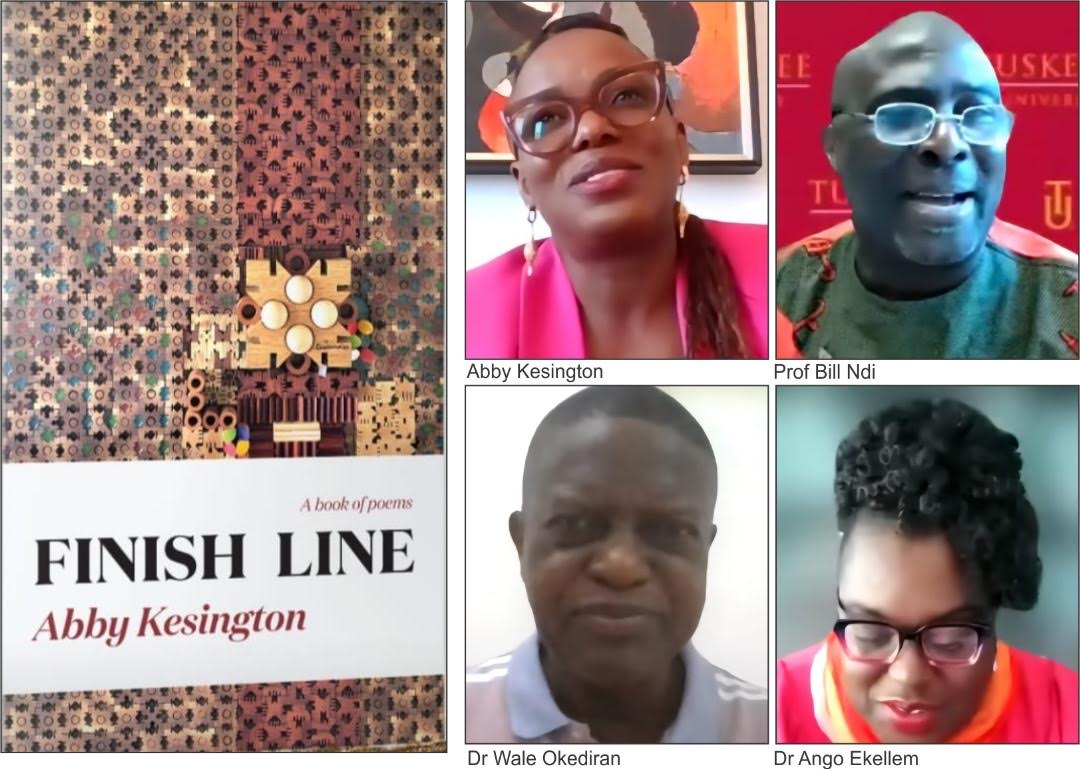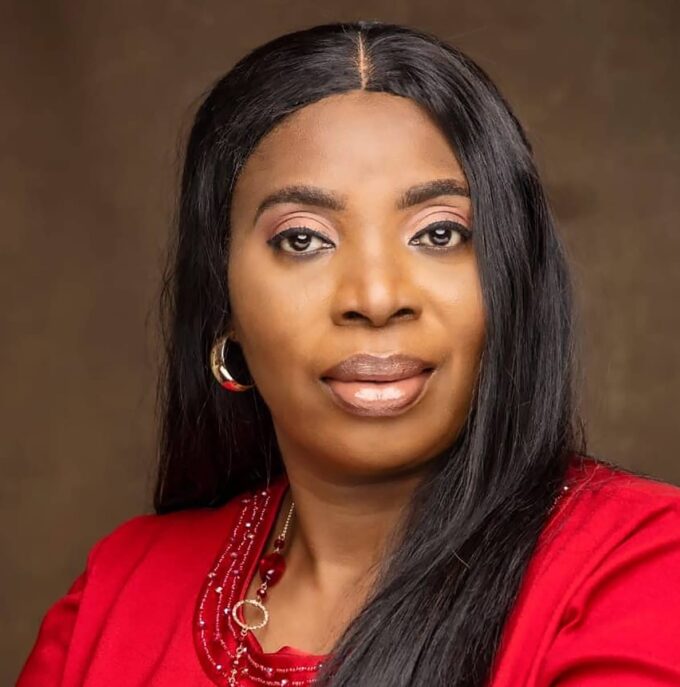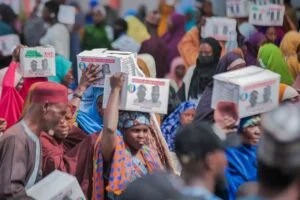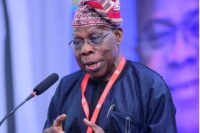The Pan African Writers Association (PAWA), through its diaspora platform WAFORD, recently launched Finish Line, the debut poetry collection by US-based Nigerian poet Abby Kesington. Written over five years during a period marked by job loss, depression, and self-discovery, the collection reflects Kesington’s journey of healing and resilience, writes Precious Ugwuzor
In a stirring celebration of words, resilience, and rediscovery, the Pan African Writers Association (PAWA), through its diaspora arm, the Writers of African Origin in the Diaspora (WAFORD), recently unveiled Finish Line, the debut poetry collection by US-based Nigerian poet Abby Kesington.
The virtual launch, hosted by WAFORD Coordinator Prof. Bill Ndi, was more than a literary event; it was a journey into the heart of a woman who turned adversity into art. Speaking with raw honesty, Kesington described the five-year-long process of writing Finish Line as a lifeline during some of the darkest moments of her life.
“I wrote it while grappling with job loss, depression, and a search for my voice,” Kesington shared. “Every stanza carries pain, hope, and healing. Writing was the process through which I reclaimed the tigress I used to be.”
For Kesington, poetry was not merely a craft—it was salvation. At the time she began working on the collection, she was working as a medical transporter, often driving patients to chemotherapy or hospice care. Those encounters with human fragility became unexpected sources of strength.
“Their resilience reminded me I still had something left inside me,” she said. “Writing became my healing.”
During the launch, Kesington read from several pieces in the collection, including The Voice, I Am Gem, and the title poem Finish Line. Each poem, she noted, was born from a deeply personal place. The Voice, for instance, was written after a panic attack during a public reading. Though smiling on the outside, she was wrestling with impostor syndrome on the inside. “That war became a poem,” she recalled.
The title Finish Line reflects not a conclusion, but a transformation. A former high school sprinter, Kesington explained how her view of life has evolved. “I used to think life was a sprint—fast and goal-driven. But now I see it as a marathon. You stumble, pause, cry, but keep going. The finish line isn’t the end. It’s transformation.”
The collection is divided into four thematic arcs—Life of Anxiety, La Femme, Pot Pourri, and The Travels—each reflecting a chapter in her emotional and creative evolution. In one of the event’s most moving moments, Kesington read I Am Gem, a meditation on immigration and self-worth.
“Coming to the U.S., I lost myself,” she confessed. “This poem is a reminder that even flawed, we shine—we are gems.”
The opening poem of the collection, “Counting to Ten,” offers a compact yet potent exploration of the emotional and psychological toll of anxiety. It deftly captures the raw intensity of internal battles, portraying a lonely and suffocating journey through fear and despair. From the outset, the somber imagery—of a “sickening plight” and a “melancholic lullaby”—sets a heavy emotional tone. The recurring motif of counting to ten serves as both a coping mechanism and a symbol of the speaker’s effort to reclaim calm amidst chaos.
Through vivid metaphors—like the striking “Texas-sized fright”—the poem conveys the overwhelming scale of the speaker’s distress. Physical symptoms such as a racing heart, deafening silence, and a sense of drowning are presented with unflinching honesty. The poem’s structure, marked by rhythmic repetition and mounting tension, mirrors the crescendo of an anxiety episode. Yet beneath the struggle lies a yearning for serenity, a search for light within the darkness.
The collection continues with “They Made A Promise,” a deeply affecting meditation on trust, intimacy, and the disillusionment that follows broken commitments. The poem paints a tender picture of emotional vulnerability, where the anticipation of love is symbolized through “dancing on the edge of promises” and “breathing in their sweet whispers.” This initial sense of closeness and hope is soon undone, however, as promises dissolve “like morning mist.” The poem powerfully captures the emotional whiplash of disappointment and the erosion of idealism in human relationships.
In “Phase of Peace,” the poet shifts to a broader reflection on life’s unpredictability. Opening with hope and optimism signified by the symbolic “last day of the year”, the poem quickly descends into metaphorical storms: cliffs, tidal waves, and betrayals. These images illustrate the emotional turbulence that often follows the promise of new beginnings. Yet, in the heart of the storm, the speaker discovers a redemptive stillness: a “phase of peace” born not of circumstance, but of faith, resilience, and surrender.
This turning point is marked by spiritual awakening. The plea for divine intervention, “prayers and cries for respite”, is answered with the imagery of God extending a lifeline, offering not just escape but renewal. The poem beautifully articulates the human capacity to endure, and to trust that even the fiercest storms will pass.
The poem,“Who Cast A Spell?”shifts focus from internal struggle to external critique, this time casting a sharp eye on New York City. Unlike the poet’s earlier, more celebratory portrayal of Las Vegas, this piece presents New York in a stark, almost mournful light. The juxtaposition of its legendary grandeur with present-day decline is rendered in powerful visual terms: “squalid streets,” “dingy subways,” and a weeping Lady Liberty. These images underscore a sense of urban decay and lost promise.
The poem functions as both elegy and critique. Lines like “silently weeps for your slip” and “pray this spell shatters like confetti” evoke sorrow, but also a lingering hope for renewal. It is a lament for what the city once was a sanctuary, a beacon and a call to confront the realities of crime, political dysfunction, and societal disintegration. In doing so, the poem becomes a form of social commentary, urging reflection and, perhaps, change.
Prof. Bill Ndi praised the poet’s emotional candour and literary craftsmanship. “Her poems don’t just speak—they shout, they whisper, they weep,” he said. “She turns pain into poetry, and poetry into a mirror for society.”
PAWA Secretary-General Dr. Wale Okediran lauded the work as both a cultural milestone and a testament to artistic endurance. “Writing is not a sprint; it’s a journey of stamina,” he remarked. “Abby’s title is both poetic and purposeful—it distills the essence of her struggle and survival.”
Dr. Okediran also challenged WAFORD to create international creative residencies for African writers in the diaspora, modeled on a successful Nigerian program he oversees. “Let’s create sanctuaries abroad where African writers can complete their work and mentor the next generation,” he urged.
Kesington expressed deep gratitude to her sister, Tosin Kesington, a Nigeria-based English teacher, who served as the manuscript’s first editor. “She polished every word,” Abby said, dedicating the poem Will You? to her.
When asked about the recurring phrase “grand design” in her poems, Kesington offered a simple but profound response: “That’s God. I don’t preach in the poems, but I reflect what I’ve lived.”
Now, with over 30 new poems written since the completion of Finish Line, she shows no signs of slowing down. Inspiration, she says, is everywhere: “Sometimes it’s a squirrel, a butterfly, or just a sunrise that sparks a poem.”
Kesington’s message to others is as clear and compelling as her verse: “To anyone told to dim their light—this book is for you. Write your own story. Don’t let the world write it for you.”
With Finish Line, Kesington has carved out her space in the literary world—not as a sprinter who raced to the end, but as a marathoner who endured, evolved, and emerged radiant. Hers is a voice worth listening to—urgent, lyrical, and, above all, unafraid.


















Leave a comment